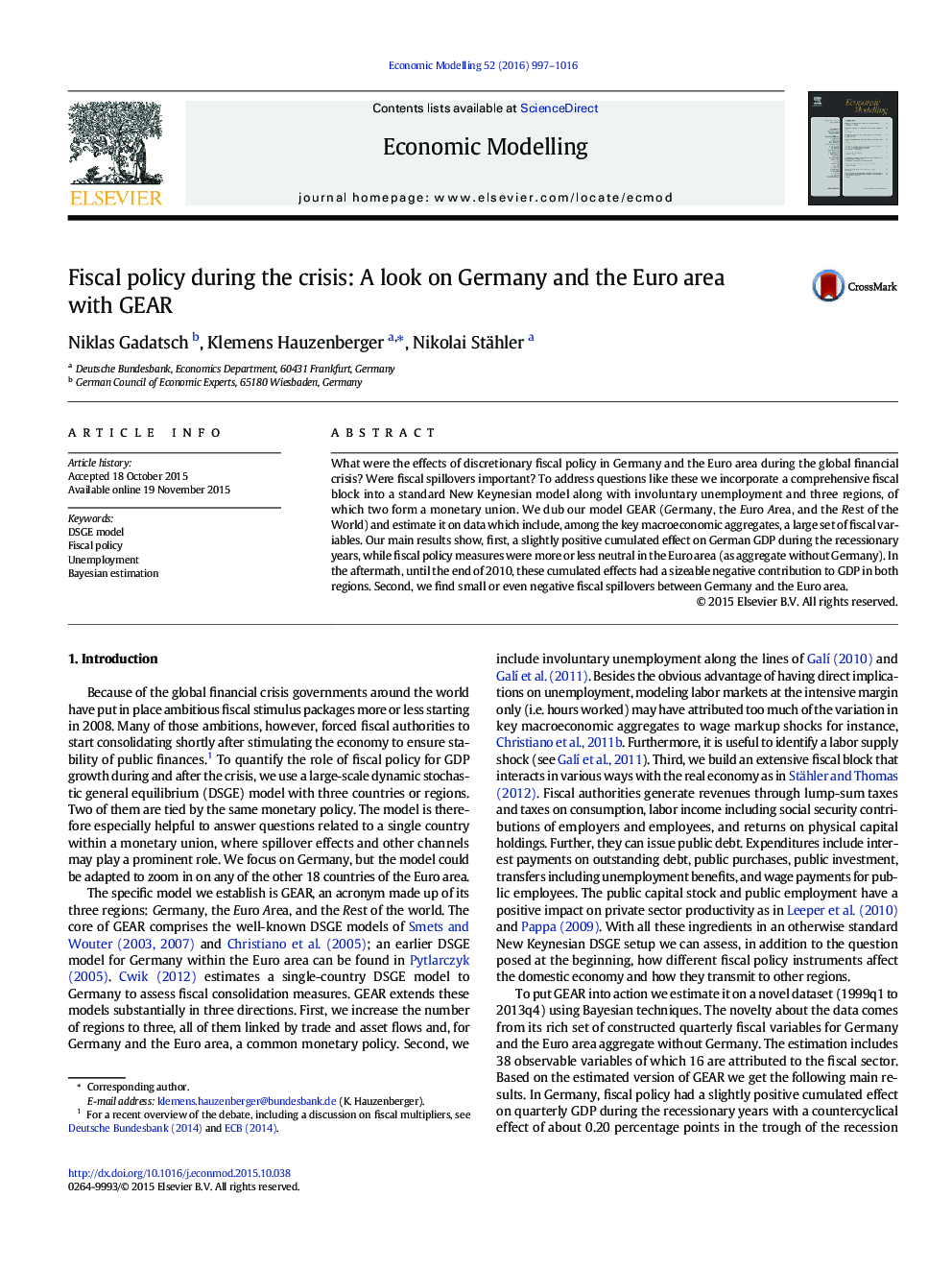| Article ID | Journal | Published Year | Pages | File Type |
|---|---|---|---|---|
| 5053693 | Economic Modelling | 2016 | 20 Pages |
Abstract
What were the effects of discretionary fiscal policy in Germany and the Euro area during the global financial crisis? Were fiscal spillovers important? To address questions like these we incorporate a comprehensive fiscal block into a standard New Keynesian model along with involuntary unemployment and three regions, of which two form a monetary union. We dub our model GEAR (Germany, the Euro Area, and the Rest of the World) and estimate it on data which include, among the key macroeconomic aggregates, a large set of fiscal variables. Our main results show, first, a slightly positive cumulated effect on German GDP during the recessionary years, while fiscal policy measures were more or less neutral in the Euro area (as aggregate without Germany). In the aftermath, until the end of 2010, these cumulated effects had a sizeable negative contribution to GDP in both regions. Second, we find small or even negative fiscal spillovers between Germany and the Euro area.
Related Topics
Social Sciences and Humanities
Economics, Econometrics and Finance
Economics and Econometrics
Authors
Niklas Gadatsch, Klemens Hauzenberger, Nikolai Stähler,
